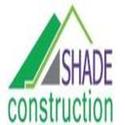Object: Object of State Acquisition and Tenancy Act is that, to remove the landlord interest from the land
to collect rent and to acquire rent receiving interest by the Govt. alone.
Recommendation of Floud commission: On March 12 of
1940, Floud Commission handed over the report to the
Government with many important recommendations, like abolition of PSR 1793, ban on subletting, fixation of land ceiling and so on.
The salient features of the report are cited below:
* Repeal of permanent Settlement Regulation 1793 and acquisition of all rent
receiving interest with compensation.
* Introduction of legislation to empower the Government to acquire all rent receiving interests.
* Acquisition of all fishery and mineral rights.
*Preparation and revision
of record of rights subsequently
of state acquisition.
* Complete ban on subletting in any form.
* Limitation on barga or
sharecropping.
* Impose of land holding limitation provision.
* Restriction on acquire of land and also retention measures of lowest ceiling. Sec. 44: Acquisition and vesting of the interest of proprietors, tenure-holders and other rent-receivers and of certain
khas lands in the government and the consequences thereof.
Leading Case:
Jibendra Kishore vs. Province of
Bangladesh (1957): It appears to
be perfectly clear that the
intention was to eliminate all rent-receiving interests in all the lands in the province and to create a uniform class of tenants directly under the provincial Government.
Sec. 3 Consequence of
acquisition interest by rent-
receiver: Sec. 3(1): It shall be
lawful for the govt. acquires all
interest of the Rent-Receiver. It
will include the interest in subsoil and right to mineral.
* Sec. 3(2):
Those property which are not
allowed to be Rent-receiver shall vest absolute of the govt. free from and encumbrance.
* Sub- Sec. 4(a): Any building used primarily as office or Kutchery for the collection of the Rent shall vest absolutely in the govt. free from all
encumbrance.
* Rent receiver shall allowed to retain building within this Homestead.
* Sub-sec. 4(F): All tenant shall become directly under the govt. and pay rent, land revenue/ directly to the govt. and any body else.
* Sub- sec. 4(G): Land revenue shall be recoverable under the Public Demands Recovery Act.
* Sub-sec. 5: The outgoing rent receiver whose interest has been acquired under this section shall be entitle to compensation.
Rule-55: Calculation of annual
letting value of non-agricultural
lands and compensation for
buildings under section 13(1) (e)
and (f) (i)- The annual letting
value of the lands under items (e) and (f) (i) of sub-section (1) of
section 39 shall be the rents that the lads would have fetched, had they been let out, and in determining such rents, the Revenue Officer shall have regard to the principles laid down in section 13, so far as they apply to non-agricultural lands. (2) In arriving at the
actual cost of construction of any building less depreciation under item (f) (ii) of sub-section (1) of section 39, the Revenue Officer shall take into account the estimates of a building expert of the Provincial Government not below the rank of an Executive Engineer regarding the cost likely
to have been incurred for the
construction of the building and
the amount which should be
deducted from such cost on
account of depreciation.
Sec. 145A Land Survey Tribunal:
Sec. 145A (4) A land survey
tribunal shall dispose of the suit
arising out of the final publication of the last revised record of rights prepared under sec. 144.
(5) If any suit arising out of the final publication of the last revised record of rights prepared under sec. 144 is instituted in any Civil Court.
(6) Any person aggrieved
by the final publication of the last revised record of rights prepared under sec. 144 may, within one year from the date of such publication. or from the date of the establishment of the Land Survey Tribunal.
Sec. 145B Land survey Appellate Tribunal:
(5) Any person aggrieved by any judgment, decree or order of the Land Survey Tribunal may, within three months from the date of such judgment, decree or order, prefer an appeal
to the Land Survey Appellate
Tribunal. (6) An appeal may be
admitted within next three
months even after the expiry of
the period specified in sub-sec.
(5). Sec. 145C. Appeal to the
Appellate Division: An appeal
from a judgment or order of the
LSAT shall lie to the Appellate
Division of the Supreme Court
only if the Appellate Division
grants leave to appeal. Art-103 of the Bangladesh Constitution says Leave to Appeal. Sec. 145D.
Power and Procedure or
Tribunals:
(1) For the purpose of disposal of suits or appeals, a LST or a LSAT, as the case may be, shall exercise the powers and follow the Procedure under the Code of Civil Procedure, 1908, in respect of the following matters, namely:
(a) Summoning
(b) Discovery of document
(c) requiring evidence on affidavit.
(5) The LSAT may, of its own motion or upon an application made to it, by order in writing, transfer, at any stage of the proceedings, any suit from one LST to another LST within the territorial limits of its jurisdiction.
Sec. 145E. Finality of Tribunals’ decisions and orders:
The decisions of the LST shall be
final. Sec. 145F. Bar to
jurisdiction of Civil Courts:
Under sec. 144 shall lie in any civil court within the
territorial limits of the jurisdiction for which a LST is established under sec. 145A. Sec. 145G.
Power to abolish tribunals etc.
The Govt. may, by notification in
the official Gazette, at any time
abolish any LST established under
sec. 145A and LSAT established
under sec. 145B, and while so
abolishing, the Govt. shall in the
same notification, specify the
courts where the suits, appeals
and other proceedings pending in such Tribunal at the time of such abolition shall be transferred to and be disposed of. Sec. 145H.
Overriding effect. Sec. 145I.
Rule making power. Sec.86.
* Alluvion: Three types:
1. Re-appearance of a land lost by diluvion.
2. Gradual enhancement
of a land on the bank of a river. 3. Any other land.
* Before 1972 Tenant’s right in his diluviated land subsists for 20 years.
* 1972-1994 shall vest in the Govt.
* From 1994 Tenant’s right the
lands of a holding or portion
thereof during the period of loss by diluvion if such lands re-appear in situ within thirty years of their loss. Sec. 86
(1): If the land is lost
by diluvion the rent-revenue shall be abetted.
(2) The right, title and interest of the owner shall subsist for a period of 30 years. If the land re-appearance in situ.
(4) The collector shall take
possession of the land than to
prepare a map by conducting a
survey.
(5) The Collector shall,
within 45 days of the completion of survey and preparation of map
under sub-sec.(4).
(6) The lands allotted under sub-sec. (5).
(7) The provision of this section shall not apply to cases of re-
appearance of land caused or
accelerated by any artificial or
mechanical process as a result of development works undertaken by the Govt. or any authority empowered or authorised by or
under law to undertake such
development works. If the land is
re- appearance or appear or the
Alluvion is a consequence. Sec.
87. When any land has been gained by accession, whether from the recess of a river or of the sea, it shall not be considered as an
increment to the holding or
tenancy to which it may be thus
annexed, but shall vest absolutely
in the Government of the People’s Republic of Bangladesh and shall be at their disposal.
Sec. 76.
Settlement and use of land vested in the government. No land shall be settled with a person unless he
is a person to whom transfer of
land can be made under sec. 90.
Sec. 96 Right of Pre-emption:
If a portion or share of a holding of a raiyat is sold to a person who is not a co-sharer tenant in the holding, one or more co-sharer tenants of the holding may, within two months of the service of the notice given under sec.98, or, if no notice has been served under sec. 98, within two months of the date of the knowledge of the sale, apply
to the Court for the said portion
or share to be sold to himself or
themselves. Sec. 97. Restriction
of alienation of land by
aboriginals: (2) No transfer by anaboriginal raiyat of his right in his holding or in any portion thereof shall be valid unless it is made to another aboriginal domiciled or permanently residing in Bangladesh
who is a person to whom the
transfer of such holding or
portion thereof can be made
under sec.90 (3) If in any case an aboriginal raiyat desires to
transfer holding or any portion
thereof any private sale, gift or
will to any person who is not such an aboriginal, he may apply to the Revenue-officer for permission.
(5) An aboriginal raiyat’s power to mortgage his land shall be
restricted to only one form of
mortgage, namely, a complete
usufructuary mortgage. (7) Any
transfer made by an aboriginal
raiyat in contravention of the
provisions of this section shall be void.
Land Reforms Ordinance: Sec. 4.
Limitation on acquisition of
agricultural land: (1) No malik
who or whose family owns more than sixty standard bighas of agricultural land shall acquire any new agricultural land by transfer,
inheritance, gift or any other
means.
(2) A malik who or whose family owns less than sixty standard bighas of agricultural land may acquire.
(3) The area of
land which is in excess of sixty
standard bighas shall vest in the
Government and no compensation shall be payable to him, Except acquired by inheritance, gift or will.
Sec. 5. No benami transaction: No person shall purchase any immovable property for his own benefit in the name of
another person.
* Where the owner of any immovable property transfers or bequeaths it by a registered deed.
Sec. 7. Settlement of Khas land for homestead:
(1) Where in the rural
area any khas land fit for being
used as homestead is available,
the Government shall, in settling such land, give preference to landless farmers and labourers.
(2) Any land settled under sub-
sec. (1) shall be heritable but not transferable.
Sec.8. Cultivation under barga contract: A barga contract shall be valid for a period of five years commencing from
such date as may be specified in
the barga contrac.
Sec. 11. Termination of barga contract:
No owner shall be entitled to
terminate a barga contrac except in execution of an order, made by the prescribed authority.
Sec.12. Division of produce of barga land: The produce of any barga land shall be divided in the follwing manner, namely:- (a) one- third shall be received
by the owner for the land;
(b) one- third shall be received by bargadar for the labour;
(c) one-third shall be received by the owner or the bargadar or by both in proportion to the cost of cultivation, other than the cost of labour, borne by
them. Sec.13. Bargadar’s right to
purchase: Where the owner
intends to sell the barga land, he shall ask the bargadar in writing if he is willing to purchase the land.
* The bargadar shall, within
fifteen days from the date of
receipt of the offer, inform the
owner in writing of his decision to purchase or not to purchase the land. The right of the bargadar is portion.
Sec.14. Ceiling of barga land:
No bargadar shall be entitled to cultivate more than fifteen standard bighas of land.
NATA: Definition: Sec. 2(4)
“Non-agricultural Land” means
land which is used for purposes
not connected with agriculture or horticulture and includes any land which on lease for purpose not connected with agriculture or horticulture irrespective of whether it is used for any such purposes or not, but does not include- (a) a homestead to which the provisions of sec. 182 of the
Bengal Tenancy Act. (b) land which was originally leased for
agricultural or horticultural
purpose but is being used for
purses not connected with
agriculture or horticulture without the consent either express or implied of the landlords, if the period for which such land has been so used is used than twelve years; and (c) land which is held for purpose connected with the Colton or manufacture of tea. Sec.2(5) “ Non-agricultural tenant” means a person who holds non agricultural land under another person with consent of that person and is, or but for a special consent would be, liable to pay rent to such person for that land
and also includes the sucessors in
interest of the former but does
not include any person who holds
any such land on which any
premises occupied by such
persons are situated if such
premises have been erected, or
are owned by the person to whom
such occupier is, or but for such
occupation.
Object: Object of State Acquisition
and Tenancy Act is that, to remove
the landlord interest from the land
to collect rent and to acquire rent
receiving interest by the Govt.
alone. Recommendation of Floud
commission: On March 12 of
1940, Floud Commission handed
over the report to the
Government with many important
recommendations, like abolition
of PSR 1793, ban on subletting,
fixation of land ceiling and so on.
The salient features of the report
are cited below: * Repeal of
permanent Settlement Regulation
1793 and acquisition of all rent
receiving interest with
compensation. * Introduction of
legislation to empower the
Government to acquire all rent
receiving interests. * Acquisition
of all fishery and mineral rights. *
Preparation and revision
of record of rights subsequently
of state acquisition. * Complete
ban on subletting in any form. *
Limitation on barga or
sharecropping. * Impose of land
holding limitation provision. *
Restriction on acquire of land and
also retention measures of lowest
ceiling. Sec. 44: Acquisition and
vesting of the interest of
proprietors, tenure-holders and
other rent-receivers and of certain
khas lands in the government and
the consequences thereof. Case:
Jibendra Kishore vs. Province of
Bangladesh (1957): It appears to
be perfectly clear that the
intention was to eliminate all rent-
receiving interests in all the lands
in the province and to create a
uniform class of tenants directly
under the provincial Government.
Sec. 3 Consequence of
acquisition interest by rent-
receiver: Sec. 3(1): It shall be
lawful for the govt. acquires all
interest of the Rent-Receiver. It
will include the interest in subsoil
and right to mineral. * Sec. 3(2):
Those property which are not
allowed to be Rent-receiver shall
vest absolute of the govt. free
from and encumbrance. * Sub-
Sec. 4(a): Any building used
primarily as office or Kutchery for
the collection of the Rent shall
vest absolutely in the govt. free
from all
encumbrance. * Rent receiver
shall allowed to retain building
within this Homestead. * Sub-sec.
4(F): All tenant shall become
directly under the govt. and pay
rent, land revenue/ directly to the
govt. and any body else. * Sub-
sec. 4(G): Land revenue shall be
recoverable under the Public
Demands Recovery Act. * Sub-sec.
5: The outgoing rent receiver
whose interest has been acquired
under this section shall be entitle
to compensation.
Rule-55: Calculation of annual
letting value of non-agricultural
lands and compensation for
buildings under section 13(1) (e)
and (f) (i)- The annual letting
value of the lands under items (e)
and (f) (i) of sub-section (1) of
section 39 shall be the rents that
the lads would have fetched, had
they been let out, and in
determining such rents, the
Revenue Officer shall have regard
to the principles laid down in
section 13, so far as they apply to
non-agricultural lands. (2) In
arriving at the
actual cost of construction of any
building less depreciation under
item (f) (ii) of sub-section (1) of
section 39, the Revenue Officer
shall take into account the
estimates of a building expert of
the Provincial Government not
below the rank of an Executive
Engineer regarding the cost likely
to have been incurred for the
construction of the building and
the amount which should be
deducted from such cost on
account of depreciation.
Sec. 145A Land Survey Tribunal:
Sec. 145A (4) A land survey
tribunal shall dispose of the suit
arising out of the final publication
of the last revised record of rights
prepared under sec. 144. (5) If
any suit arising out of the final
publication of the last revised
record of rights prepared under
sec. 144 is instituted in any Civil
Court. (6) Any person aggrieved
by the final publication of the last
revised record of rights prepared
under sec. 144 may, within one
year from the date of such
publication. or from the date of
the establishment of the Land
Survey Tribunal.
Sec. 145B Land survey Appellate
Tribunal: (5) Any person
aggrieved by any judgment,
decree or order of the Land
Survey
Tribunal may, within three months
from the date of such judgment,
decree or order, prefer an appeal
to the Land Survey Appellate
Tribunal. (6) An appeal may be
admitted within next three
months even after the expiry of
the period specified in sub-sec.
(5). Sec. 145C. Appeal to the
Appellate Division: An appeal
from a judgment or order of the
LSAT shall lie to the Appellate
Division of the Supreme Court
only if the Appellate Division
grants leave to appeal. Art-103 of
the Bangladesh Constitution says
Leave to Appeal. Sec. 145D.
Power and Procedure or
Tribunals: (1) For the purpose of
disposal of suits or appeals, a LST
or a LSAT, as the case may be,
shall exercise the
powers and follow the Procedure
under the Code of Civil Procedure,
1908, in respect of the following
matters, namely: (a) Summoning
(b) Discovery of document (c)
requiring evidence on affidavit. (5)
The LSAT may, of its own motion
or upon an application made to it,
by order in writing, transfer, at
any stage of the proceedings, any
suit from one LST to another LST
within the territorial limits of its
jurisdiction. Sec. 145E. Finality of
Tribunals’ decisions and orders:
The decisions of the LST shall be
final. Sec. 145F. Bar to
jurisdiction of Civil Courts:
Under sec. 144 shall lie in any civil
court within the
territorial limits of the jurisdiction
for which a LST is established
under sec. 145A. Sec. 145G.
Power to abolish tribunals etc.
The Govt. may, by notification in
the official Gazette, at any time
abolish any LST established under
sec. 145A and LSAT established
under sec. 145B, and while so
abolishing, the Govt. shall in the
same notification, specify the
courts where the suits, appeals
and other proceedings pending in
such Tribunal at the time of such
abolition shall be transferred to
and be disposed of. Sec. 145H.
Overriding effect. Sec. 145I.
Rule making power.
Sec.86.
* Alluvion: Three types:
1. Re-appearance of a land lost by diluvion.
2. Gradual enhancement
of a land on the bank of a river. 3. Any other land.
* Before 1972 Tenant’s right in his diluviated land subsists for 20 years.
* 1972-1994 shall vest in the Govt.
* From 1994 Tenant’s right the
lands of a holding or portion
thereof during the period of loss by diluvion if such lands re-appear in situ within thirty years of their loss.
Sec. 86 (1): If the land is lost
by diluvion the rent-revenue shall be abetted.
(2) The right, title and interest of the owner shall subsist for a period of 30 years. If the land re-appearance in situ.
(4) The collector shall take
possession of the land than to
prepare a map by conducting a
survey.
(5) The Collector shall, within 45 days of the completion of survey and preparation of map
under sub-sec.(4).
(6) The lands allotted under sub-sec. (5).
(7) The provision of this section shall not apply to cases of re-
appearance of land caused or
accelerated by any artificial or
mechanical process as a result of development works undertaken by the Govt. or any authority empowered or authorized by or under law to undertake such development works. If the land is re-appearance or appear or the
Alluvion is a consequence. Sec.
87. When any land has been gained by accession, whether from the recess of a river or of the sea, it shall not be considered as an increment to the holding or tenancy to which it may be thus annexed, but shall vest absolutely in the Government of the People’s
Republic of Bangladesh and shall be at their disposal.
Sec. 76. Settlement and use of land vested in the government. No land shall be settled with a person unless he is a person to whom transfer of land can be made under sec. 90.
Sec. 96 Right of Pre-emption:
If a portion or share of a holding of a raiyat is sold to a person who is not a co-sharer tenant in the holding, one or more co-sharer tenants of the holding may, within two months of the service of the
notice given under sec.98, or, if no notice has been served under sec. 98, within two months of the date of the knowledge of the sale, apply
to the Court for the said portion
or share to be sold to himself or
themselves. Sec. 97. Restriction
of alienation of land by aboriginals: (2) No transfer by an aboriginal raiyat of his right in his holding or in any portion thereof shall be valid unless it is made to another aboriginal domiciled or permanently residing in Bangladesh
who is a person to whom the
transfer of such holding or
portion thereof can be made
under sec.90 (3) If in any case an aboriginal raiyat desires to
transfer holding or any portion
thereof any private sale, gift or
will to any person who is not such an aboriginal, he may apply to the Revenue-officer for permission.
(5) An aboriginal raiyat’s power to mortgage his land shall be
restricted to only one form of
mortgage, namely, a complete
usufructuary mortgage. (7) Any
transfer made by an aboriginal
raiyat in contravention of the
provisions of this section shall be.void.
Land Reforms Ordinance: Sec. 4.
Limitation on acquisition of
agricultural land:
(1) No malik who or whose family owns more than sixty standard bighas of agricultural land shall acquire any new agricultural land by transfer,
inheritance, gift or any other
means.
(2) A malik who or whose
family owns less than sixty
standard bighas of agricultural
land may acquire.
(3) The area of land which is in excess of sixty standard bighas shall vest in the Government and no compensation shall be payable to him, Except acquired by inheritance, gift or
will. Sec. 5. No benami
transaction: No person shall
purchase any immovable property for his own benefit in the name of another person.
* Where the owner of any immovable property
transfers or bequeaths it by a
registered deed. Sec. 7.
Settlement of Khas land for
homestead: (1) Where in the rural area any khas land fit for being used as homestead is available, the Government shall, in settling such land, give preference to
landless farmers and labourers.
(2) Any land settled under sub-
sec. (1) shall be heritable but not
transferable.
Sec.8. Cultivation under barga contract:
A barga contract shall be valid for a period of five years commencing from such date as may be specified in the barga contrac.
Sec. 11. Termination of barga contract: No owner shall be entitled to terminate a barga contrac except in execution of an order, made by the prescribed authority.
Sec.12. Division of produce of barga land: The produce of any barga land shall be divided in the follwing manner, namely:- (a) one- third shall be received
by the owner for the land;
(b) one- third shall be received by abraders for the labour;
(c) one-third shall be received by the owner or the bargadar or by both in proportion to the cost of cultivation, other
than the cost of labor, borne by
them. Sec.13. Bargadar’s right to
purchase: Where the owner
intends to sell the barge land, he shall ask the barrater in writing if he is willing to purchase the land.
* The broader shall, within fifteen days from the date of receipt of the offer, inform the owner in writing of his decision to purchase or not to purchase the land. The right of the broader is portion.
Sec.14. Ceiling of barga land: No
broader shall be entitled to
cultivate more than fifteen
standard bights of land.
NATA: Definition: Sec. 2(4)
“Non-agricultural Land” means
land which is used for purposes
not connected with agriculture or horticulture and includes any land which on lease for purpose not connected with agriculture or horticulture irrespective of whether it is used for any such purposes or not, but does not include- (a) a homestead to which
the provisions of sec. 182 of the
Bengal Tenancy Act. (b) land which was originally leased for
agricultural or horticultural
purpose but is being used for
purses not connected with
agriculture or horticulture without the consent either express or
implied of the landlords, if the
period for which such land has
been so used is
used than twelve years; and (c)
land which is held for purpose
connected with the Colton or
manufacture of tea. Sec.2(5) “
Non-agricultural tenant” means
a person who holds non
agricultural land under another
person with consent of that
person and is, or but for a special consent would be, liable to pay rent to such person for that land and also includes the successors in interest of the former but does not include any person who holds any such land on which any premises occupied by such persons are situated if such premises have been erected, or are owned by the person to whom such occupier is, or but for such occupation.
Collected


























 0088-01755991488, 01675623096
0088-01755991488, 01675623096



